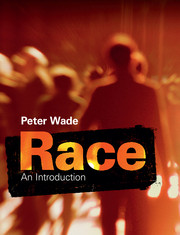End of Whiteness: Satanism & Family Murder in Late Apartheid South AfricaPosted in Africa, Books, Communications/Media Studies, Media Archive, Monographs, South Africa on 2016-07-16 02:11Z by Steven |
End of Whiteness: Satanism & Family Murder in Late Apartheid South Africa
Jacana Media
March 2016
240 pages
235x155mm
Paperback ISBN: 9781431423279
Nicky Falkof, Senior Lecturer in Media Studies
University of the Witwatersrand, Johannesburg, South Africa
Satanism and family murder – bizarre responses to fear of change. This book examines the effects that apartheid may have had on those who benefitted from it the most.
The End of Whiteness aims to reveal the pathological, paranoid and bizarre consequences that the looming end of apartheid had on white culture in South Africa, and overall to show that whiteness is a deeply problematic category that needs to be deconstructed and thoughtfully considered.
This book uses contemporary media material to investigate two symptoms of this late apartheid cultural hysteria that appeared throughout the contemporary media and in popular literature during the 1980s and 1990s, showing their relation to white anxieties about social change, the potential loss of privilege and the destabilisation of the country that were imagined to be an inevitable consequence of majority rule.
The ‘Satanic panic’ revolved around the apparent threat posed by a cult of white Satanists that was never proven to exist but was nonetheless repeatedly accused of conspiracy, murder, rape, drug-dealing, cannibalism and bestiality, and blamed for the imminent destruction of white Christian civilisation in South Africa.
During the same period an unusually high number of domestic murder-suicides occurred, with parents killing themselves and their children or other family members by gunshot, fire, poison, gas, even crossbows and drownings. This so-called epidemic of family murder was treated by police, press and social scientists as a plague that specifically affected white Afrikaans families. These double monsters, both fantastic and real, helped to disembowel the clarities of whiteness even as they were born out of threats to it. Deep within its self-regarding modernity and renegotiation of identity, contemporary white South Africa still wears those scars of cultural pathology.



